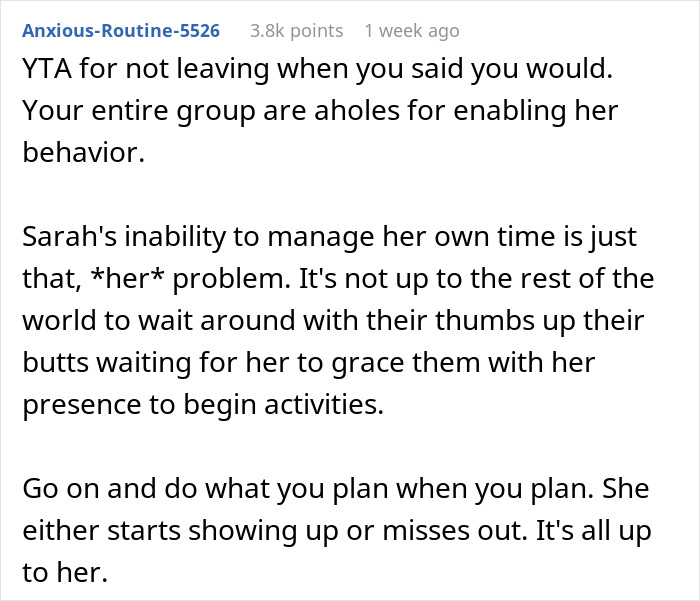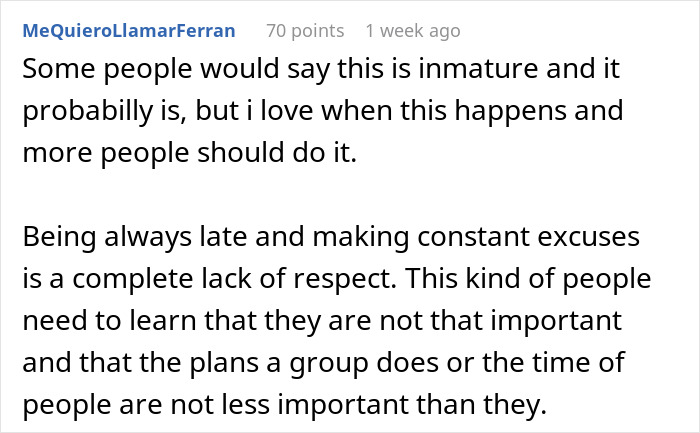Some people are sticklers for punctuality, while to others, time is only a suggestion. In a 2006 survey, 15-20% of Americans said they’re “consistently late.” Another 2017 survey revealed that almost 30% Americans are late to work every day. But how do people actually deal with the chronically late?
Well, this woman didn’t play around. She up and left her always late friend out of the birthday party bus. After the friend’s wrath and some disapproving words from the friend group, she started wondering: maybe her solution to the always late friend’s behavior wasn’t as good as she thought?
A birthday party became a disaster when a woman decided to leave the group’s always late friend behind

Image credits: LightFieldStudios (not the actual photo)
She justified her actions by saying that the friend was acting selfishly by holding up the party by more than an hour
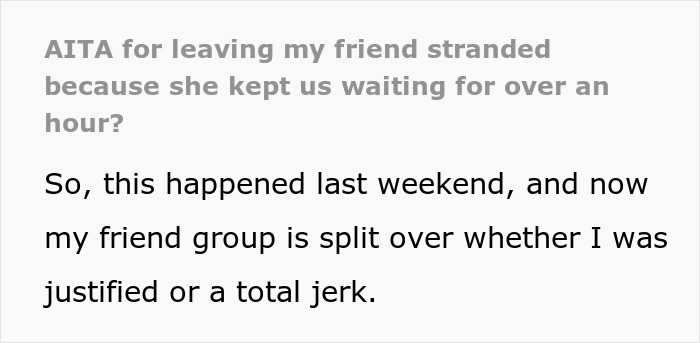
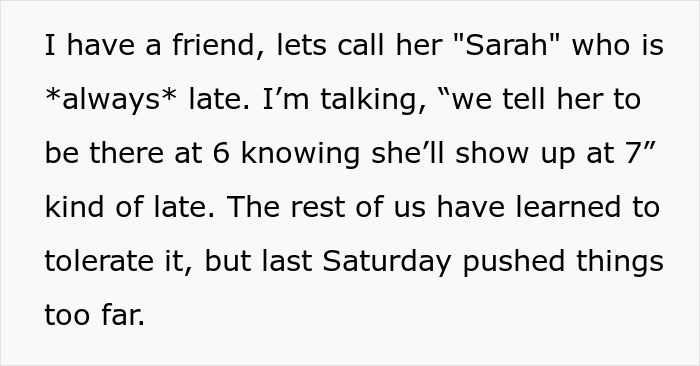


Image credits: gpointstudio (not the actual photo)


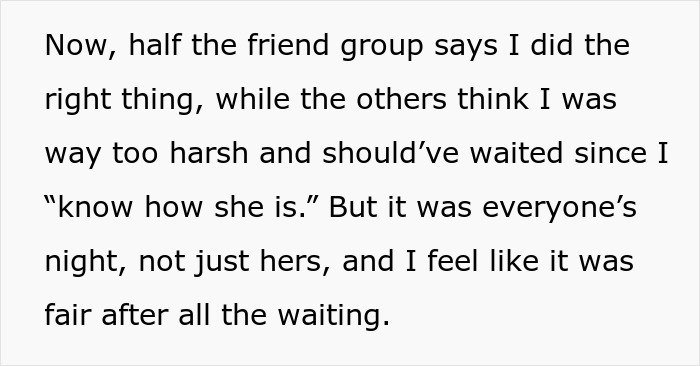

Image credits: Avenir_gd
From the perspective of good etiquette, being late is inexcusable
We probably all have at least one person in our lives for whom time is a mere suggestion. When you tell them, “Meet me at five,” they will most likely be there at 5:45. Some people get really mad at the perpetually late, as they believe it’s disrespectful.
Bored Panda asked Lisa Mirza Grotts, a 23-year certified etiquette expert, whether punctuality is a virtue or just a preference. “When you are late, it says that your time is more important than everybody else’s,” the etiquette expert says. “It’s not. It shows a lack of respect and consideration.”
“Punctuality is a courtesy that we extend to others and they extend to us. It’s the golden rule on steroids,” Grotts explains. “Remember: all of our choices have power. When you repeat good behavior, you build, trust, strength, and relationships, and set a positive example for others to follow.”
It’s true that some people like to keep others waiting. Behavior expert Somia Zaman says that some people make lateness part of their personal brand. If people already expect them to be always late, why should they change their behavior? Especially when family and friends accommodate them.
Yet scientists say that being late is not always a conscious choice
Yet many psychologists and researchers believe that most chronic late comers don’t actually decide they want to be late. The reasons for their lateness can be several. Sometimes, it’s mental health issues: anxious people are more likely to be late.
“There may be some element of executive dysfunction,” Zaman explained. “But they might also be struggling with some level of anxiety, which makes the transition of leaving one place for another difficult for them.”
Procrastination also comes into play here. The reason why you’re always late to submit that essay is not that you’re bad at time management, you’re just avoiding an unpleasant task.
“There’s something about doing that task or finishing that task that is threatening to us. It might be that we’re worried that it’s not going to be good enough, or it’s not going to please somebody,” Dr. Fuschia Sirois explained to The Guardian.
Our upbringing also influences our punctuality, and it really can go both ways. If people in our environment growing up were punctual, we might want to rebel and be more lax with time. Or, on the contrary, we might learn punctuality from our parents and caretakers and remain punctual well into our adulthood.
Some people are just really bad at estimating time
People who overschedule tend to be optimistic; they think they’ll be able to accomplish lots of things during a short amount of time. Chronically late people might just be eternal optimists.
“Some over-schedulers are people who have trouble saying ‘no,’ fearing they may offend someone, or miss out on an important opportunity (FOMO). In this case, their unrealistic plans for the day are a reflection of their worries rather than their excitement,” Somia Zaman told Metro.
A 2001 study looked into how different personality types judge time. Type A (ambitious, competitive) participants were almost right about when a minute passed by. But Type B (creative and explorative) people felt the minute was over after 77 seconds.
Chronic lateness might also be the result of how everyone approaches time differently. As Dr. Fuschia Sirois explained to The Guardian, some people are more future-oriented and others make decisions based on the present. The people in the second group might be late more often because they focus less on what’s next.
“She needs to learn the world doesn’t revolve around her schedule,” people said
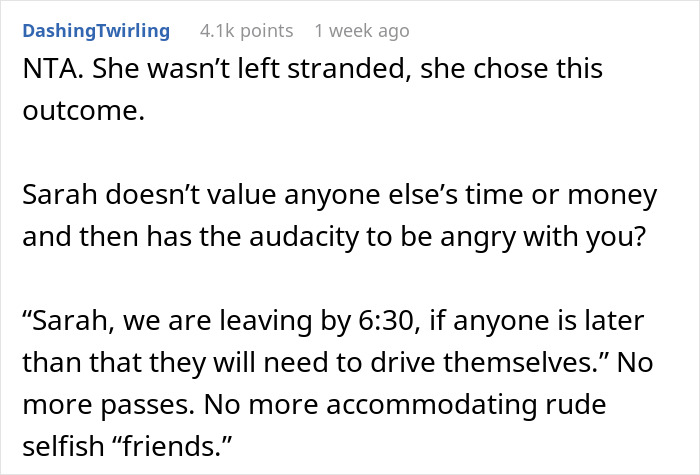


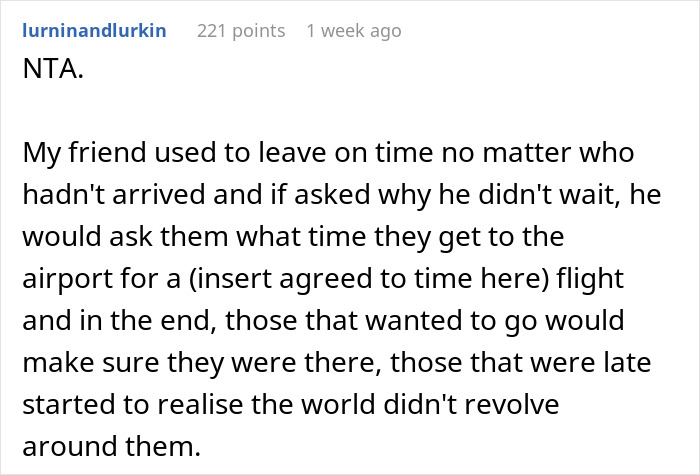

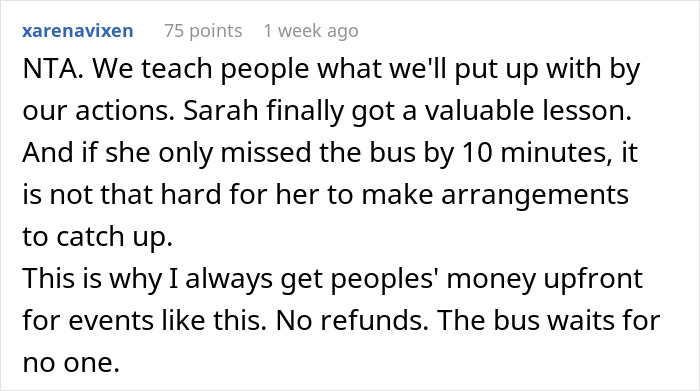


Others said the group should’ve left even earlier and stop accommodating the always late friend

